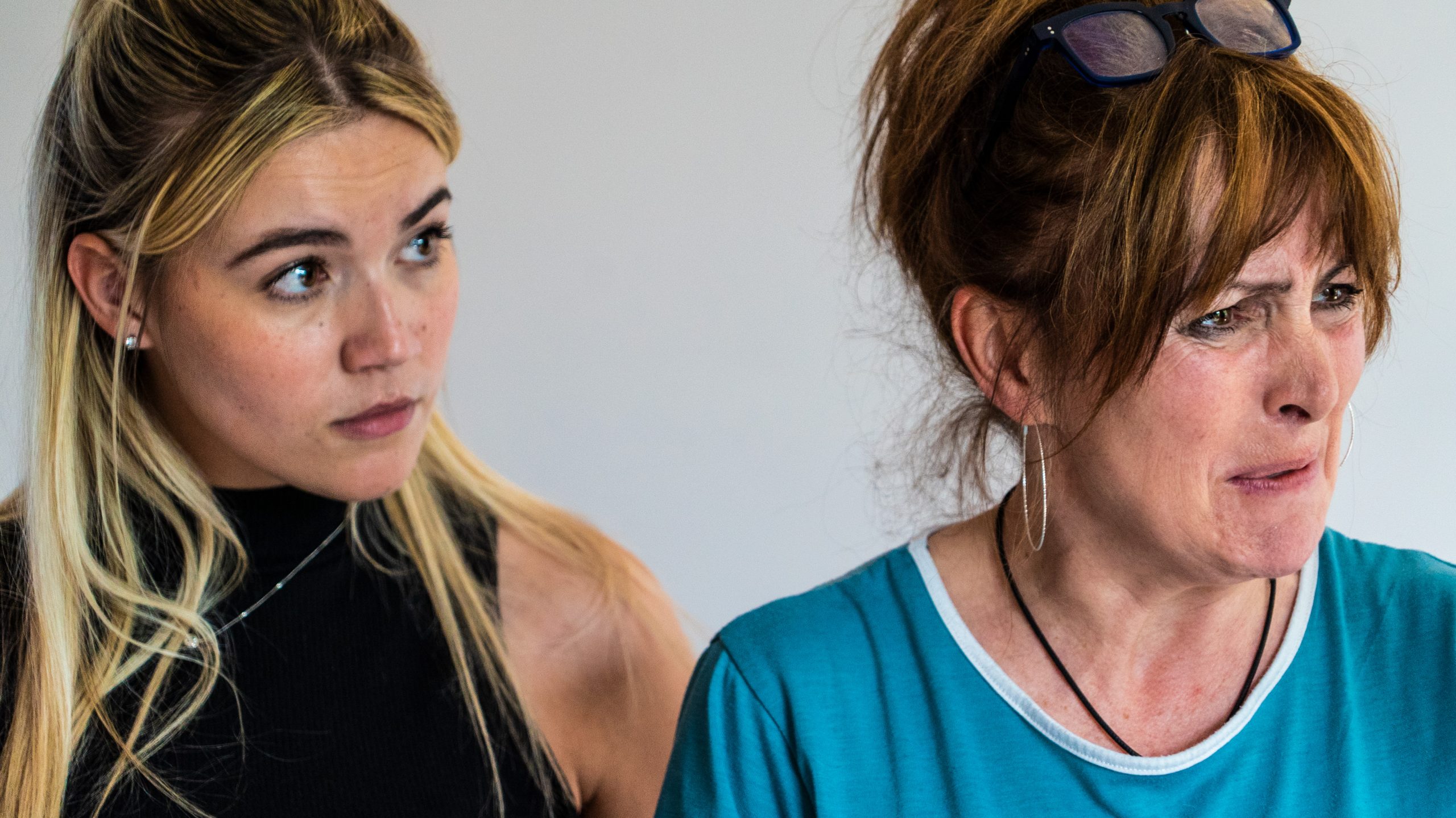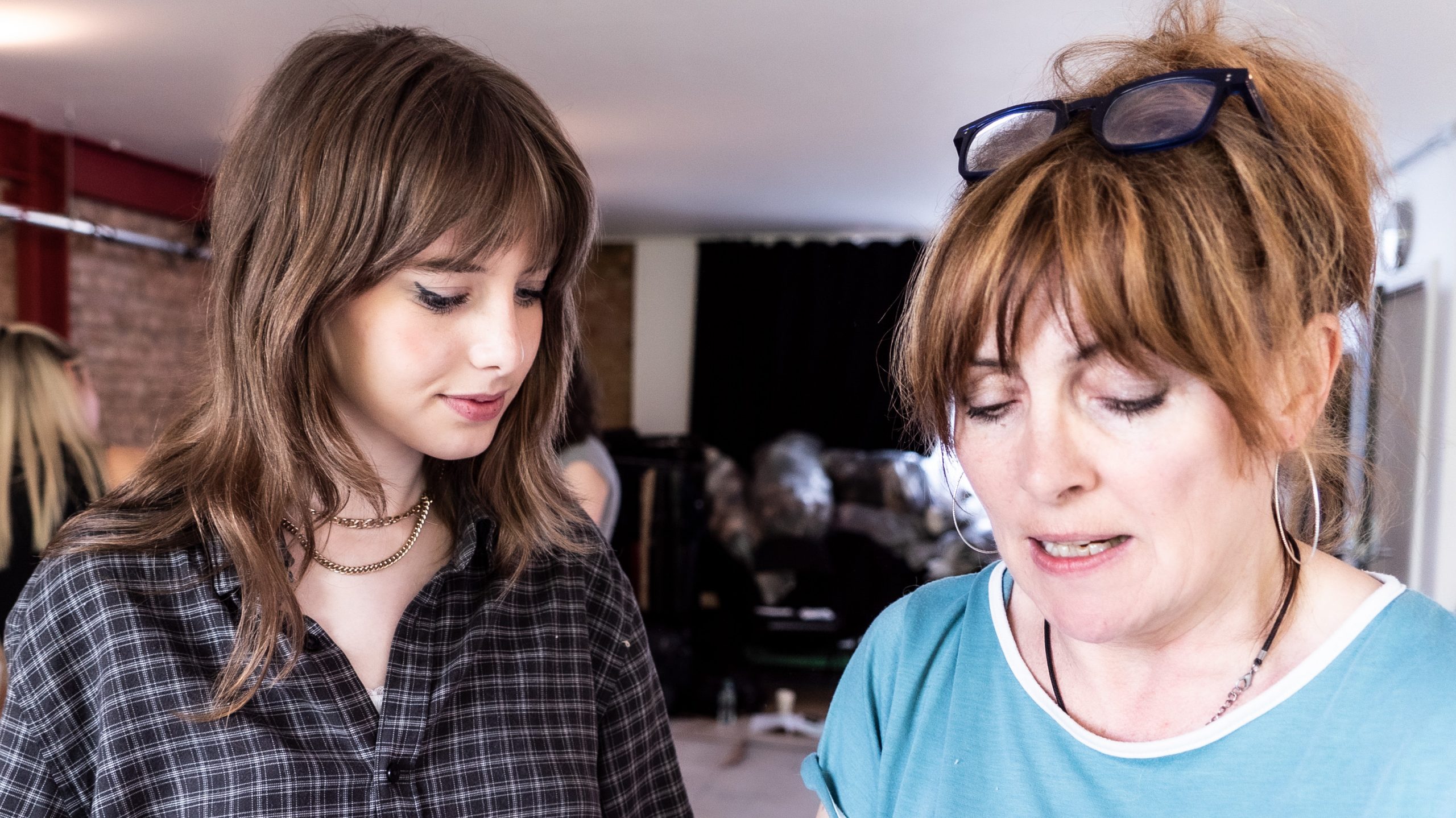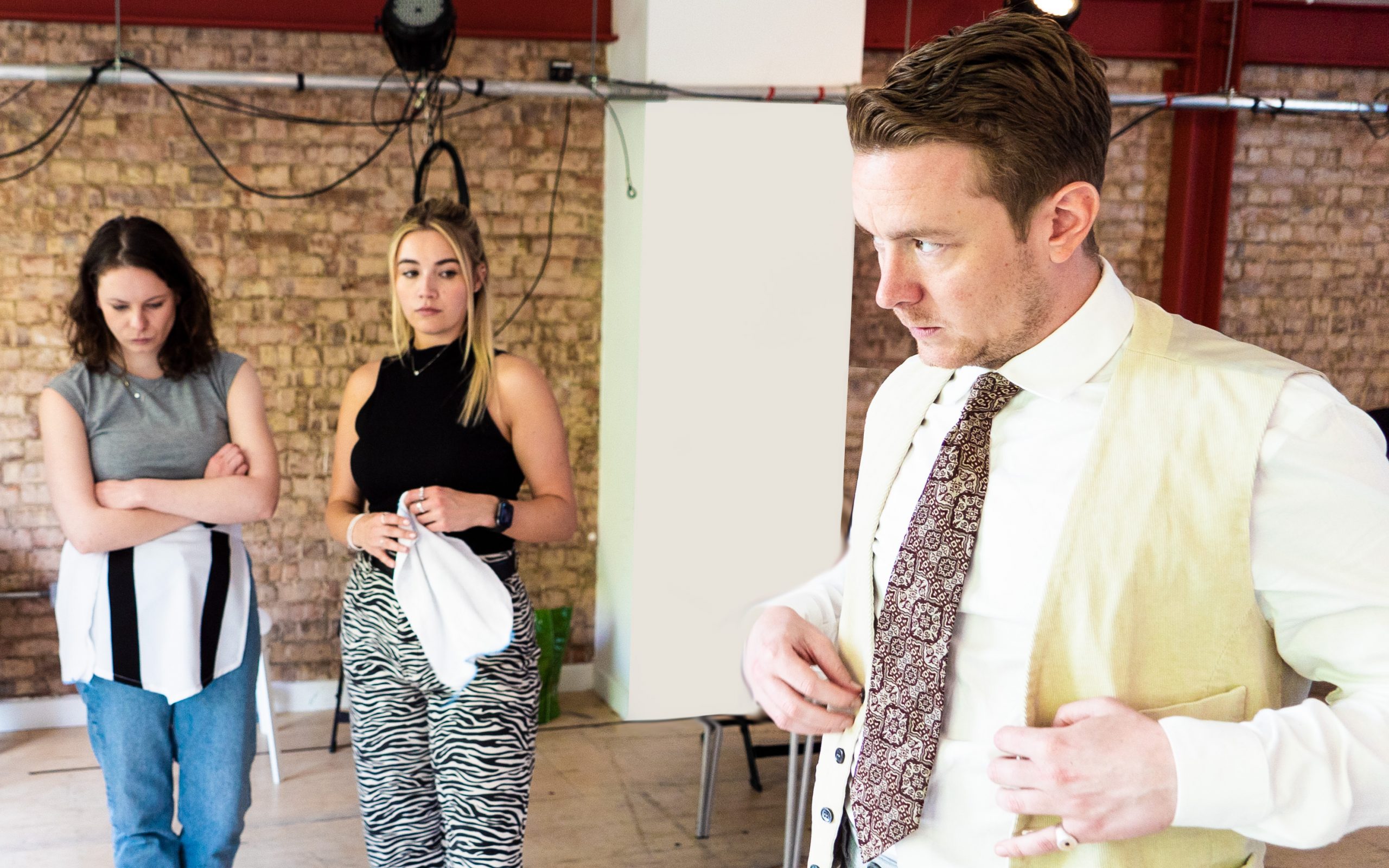
For Sally Rogers, navigation out of and beyond Greater Manchester in the 1980s to West End stages and telly screens across the nation was as remote a possibility as joining the aristocracy. Indeed, it seemed being upper middle-class was practically an entry requirement into the thespian’s world.
So Sally was caught drifting, having resigned herself to a more prosaic path, almost unknowingly, until a kindly gentleman, the father of a family in London she was nannying, told her she was far too intelligent for that job.
Some forty years later, she’s about to see her debut play, written by herself and directed by Nigel Douglas, grace North London’s Park Theatre.
It’s a play which spotlights the exact same story Sally faced herself – one of meeting barriers and overcoming them, enduring a triple nexus of obstacles for a young, ambitious woman in 1981: class immobility, stigma around sex, and building confidence. I’m speaking to her about all of it; how it was then, and how it is now.

How did a young woman from Stockport destined for a career in nannying end up with such a comprehensive acting CV and go on to have the career you’ve had?
I had absolutely zero understanding GCSEs were my ticket out of that town. No one ever explained that. The only reason I ever picked up a book to revise was because I didn’t want to get bothered by my dad. I went to the careers officer, as we all did.
I remember he was about 907, had a comb-over, wore a suit, and when I told him I wanted to travel, all he said was, ‘Well, you should probably be a nanny then, they sometimes travel.’ So I went off to be a nanny, talk about no direction! No understanding of reality! To contrast, my son wants to be a pilot!
So I was halfway through my first year at the dreary old technical college to learn how to be a nanny, and I told my dad I hated it and wanted to quit. He told me if I quit that I’d never finish anything in my life.

I stuck at it, and in between year one and two, I went to be a nanny for a Jewish family in London. The dad sat me down one evening and told me, ‘You’re too intelligent for this job. What do you really want to do?’ I said I want to be an actress. Then he told me all about the persecution of the Jews and how you’ve got to fight for what you want and believe.
You went back to retake GCSEs before going to acting school. How did you fare when you got there?
I have no idea how I learned how to speak. I had no one to help me. I was fluking it left, right, and centre. I remember standing up in front of a panel to do a speech and they asked, ‘Can you lose your accent?’ I replied, ‘What accent?’ I didn’t even understand that I had one!
If you live in the North and never leave, you don’t understand that you have one because it’s what you’re always surrounded by. But in the world of drama they were all about RP, Queen’s English. It was all quite depressing to be honest, that aspect of my training – the endless ‘saluting’ of people with a middle-class accent.
Even the voice coach said to me, ‘Use your diaphragm, it’s the same sensation as when you’re going down a ski slope.’ I wanted to scream I’d never been on a bloody ski slope!

But at this time, there were plenty of plays and TV programmes centred around working-class culture. Why did you meet this brick wall in your training when it was clear there were roles perfect for working-class actors?
There were loads of roles, but the drama schools were all out of touch. They were mainly training actors to play kings and queens at the RSC, so I thought I’d just end up being the one that fetches the king’s slippers.
How have things changed since then? If there’s a lad from up north now, coming down to London to become an actor, what different difficulties would he face compared to your generation?
Well now you have the different difficulty for working-class actors of the lack of grants. I got a grant, not to pay for my rent in London but to pay for my fees. I’m not sure I’d be able to make a career as an actor if I was starting out now.

Is there still the same amount of competition inside the theatre industry from privately educated students who then go on to get the top directorial positions?
Yes. But what cuts through that all is confidence. It’s such a mercurial thing. It allows someone like Kate Moss, who’s herself from a working-class background, to march into a five-star hotel wearing trainers 20 years ago. Somebody was interviewing her when she did just that and he was marvelling at her ease and comfort wearing trainers in such an opulent setting. That’s just confidence.
This is a great place to pivot towards Janice, the lead in The Still Room. Can everyone learn that confidence? It seems to be innate in Janice.
I think we all need the moment where someone sits you down, like the man did for me when I was a nanny in London, and gives you a bit of a boost. We’ve employed a young, working-class boy from Salford to assist the director.
I’ve found friends of mine who’ve put him up and we’ve airlifted him into this world he’d never have access to. He’s nervous, he doesn’t know what he’s doing, and it’s the first time he’s ever been to London. But it’s great to be able to walk alongside him and say, ‘Don’t worry about it.’



